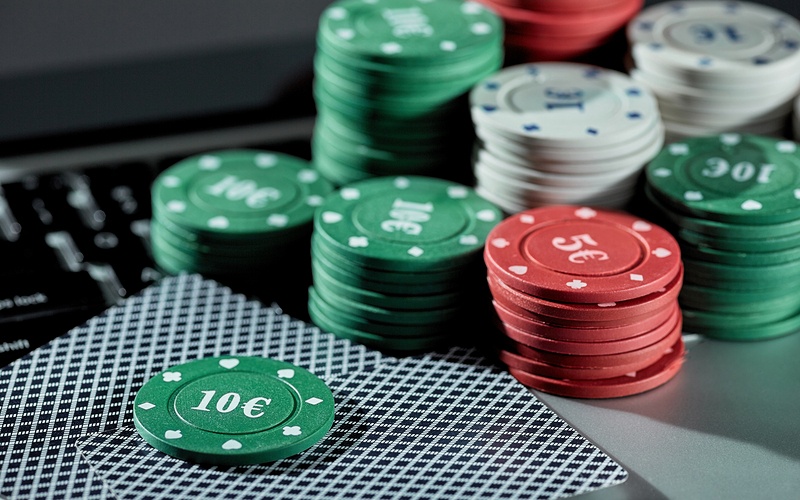SteadyOptions is an options trading forum where you can find solutions from top options traders. Join Us!
We’ve all been there… researching options strategies and unable to find the answers we’re looking for. SteadyOptions has your solution.
Search the Community
Showing results for tags 'psychology'.
-
There are many reasons to that. Barbara A. Friedberg mentions few of them: People lose money in the markets because they don’t understand economic and investment market cycles. People lose money in the markets because they let their emotions drive their investing. People lose money in the markets because they think investing is a get-rich-quick scheme. Some people will claim that it is related to lack of skills, poor risk management, poor selection of strategies etc. But the simple fact is that it is mostly related to human psychology and human emotions. Still need a proof? Fidelity Investments conducted a study on their Magellan fund from 1977-1990, during Peter Lynch’s tenure. His average annual return during this period was 29%. This is a remarkable return over the 13 year period. Given all that, you would expect that the investors in his fund made substantial returns over that period. However, what Fidelity Investments found in their study was shocking. The average investor in the fund actually lost money. How is it possible? Lynch himself pointed out a fly in the ointment. When he would have a setback, for example, the money would flow out of the fund through redemptions. Then when he got back on track it would flow back in, having missed the recovery. This isn't about trading skills. The only skill those investors needed was to stick around. But what they did basically was "buy high sell low". If this is not about human emotions, then I don't know what is. The main reasons for the poor performance of individual investors are: Human Psychology: Individuals make decisions everyday with their emotions assisting their judgment. Performance chasing: Investors who chase performance are highly likely to lose money over the long term. Casino Investing: Many people think they can make money by winning the lottery. The “me too” lemming investment strategy: This is a common strategy of people who don’t know what they are doing with their investments. Fear and Greed Investing: Those are the most powerful motivations for investors. Unfortunately, investors tend to alternate between these potentially destructive emotions. A recent Dalbar study showed how investors are their own worst enemy. From 1997 through 2016, the average active stock market investor earned 3.98 percent annually, while the S&P 500 index returned 10.16 percent in returns. The reasons are simple: Investors try to outsmart the markets by practicing frequent buying and selling in an attempt to make superior gains. Again, if anybody still needed proof that 90% of success in investing comes from human psychology, Fidelity and Dalbar studies provided that proof. Here is some advice from Barbara: To avoid losing money during a market-wide drop, your best bet is to just sit tight and wait for your investments to rebound. To avoid losing money in the markets, don’t follow the crowd and don’t buy into overvalued assets. Instead, create a sensible investment plan, and follow it. Don't follow the outrageous claims of penny stock and day-trading strategies. Similar behavior applies to trading services as well. As soon as a few losing trades and/or a drawdown of any kind occurs, some members hit the eject button and continue in their search for the Holy Grail strategy that always wins. They often come back after the next winning streak, missing the recovery. Isn't it the very definition of "Buy High, Sell Low"? Barbara A. Friedberg's final advice: To avoid losing money in the markets, tune out the outlandish investment pitches and the promises of riches. As in the fable of the Tortoise and the Hare, a “slow and steady” strategy will win out: Avoid the glamorous “can’t miss” pitches and strategies, and instead stick with proven investment approaches for the long term. Though you might lose a bit in the short-term, ultimately the slow-and-steady approach will win the financial race. Drawdowns are a fact of life for a trader. They happen. Big Drawdowns Are Part Of The Game. Apple, Amazon, Microsoft and Alphabet… All among the largest and most revered companies in the world. All have returned unfathomable amounts to their shareholders. All have experienced periods of tremendous adversity with large drawdowns. Apple investors from the IPO would experience two separate 82% drawdowns. Amazon experienced a 94% drawdown. Microsoft largest drawdown in history occurred over a 10 year period, a 70% decline from 1999 through 2009. Google had a 65% decline from 2007 through 2008. If you sold those amazing stocks during the drawdowns, you would miss their incredible gains. Conclusion There will be bad days and bad weeks and bad months, and periodically even a bad year. Focus on following your trading plan not the short term results of it. Robust strategies are profitable in the long term time frame. Please do not become part of the next Dalbar statistics. If you found a solid strategy, try to stick around. Related articles: Are You EMOTIONALLY Ready To Lose? Are You Ready For The Learning Curve? Why Retail Investors Lose Money In The Stock Market Why Simple Isn’t Easy Thinking In Terms Of Decades Can you double your account every six months? Learning To Win By Learning To Lose How To Avoid Emotional Mistakes In Trading 10,000 Hours Of Trading



